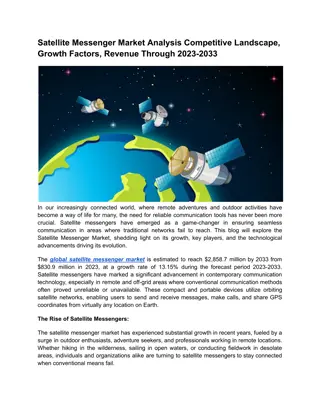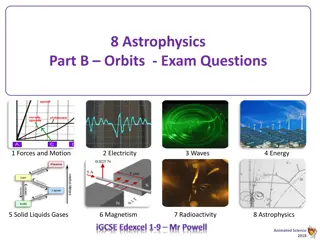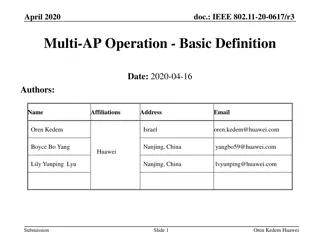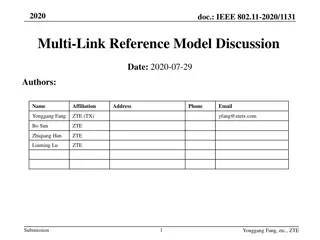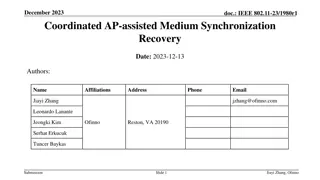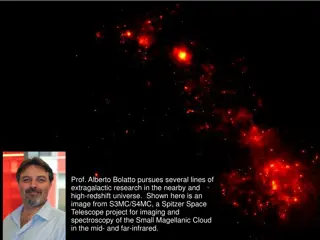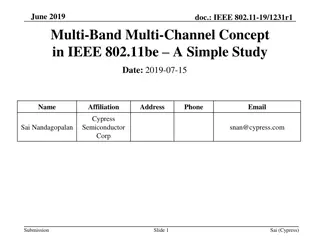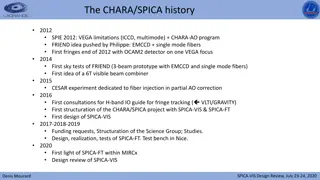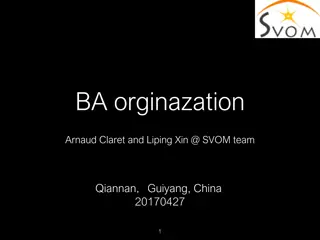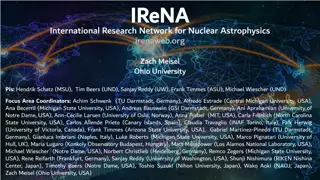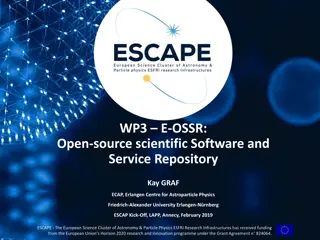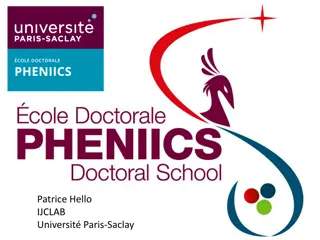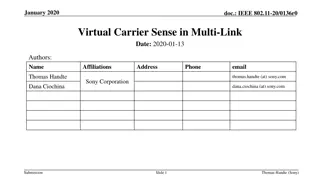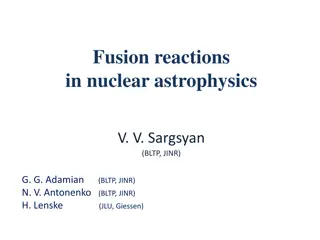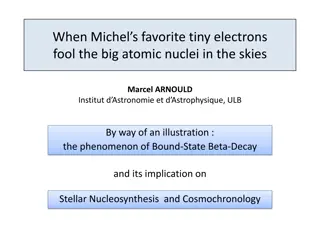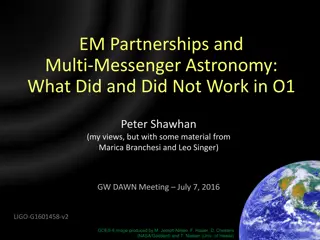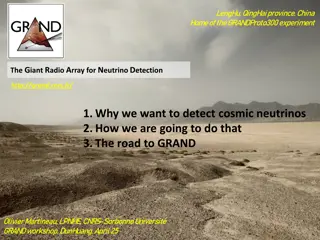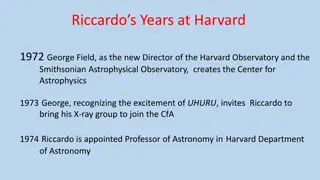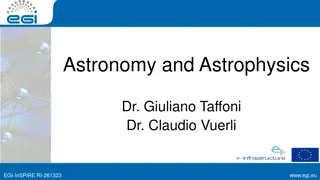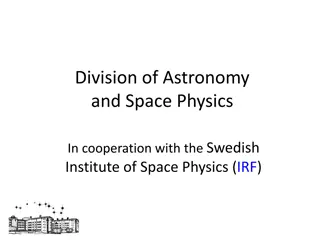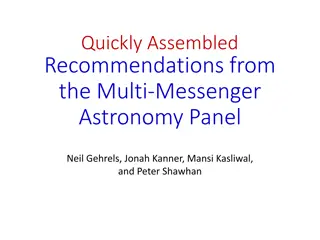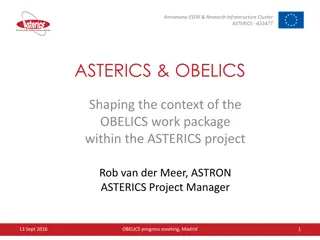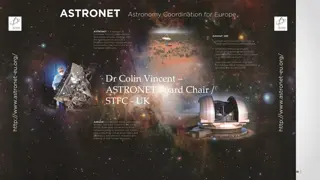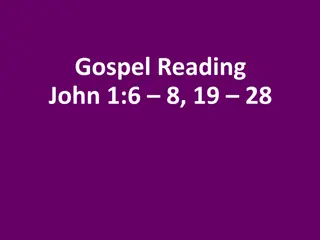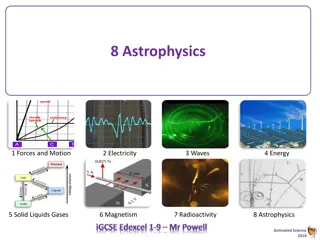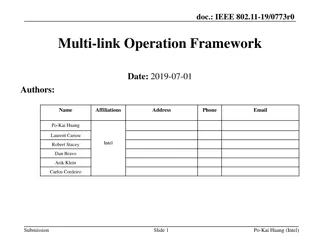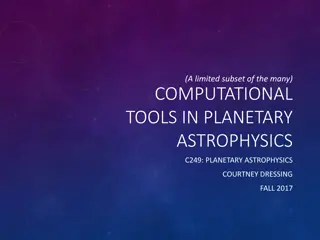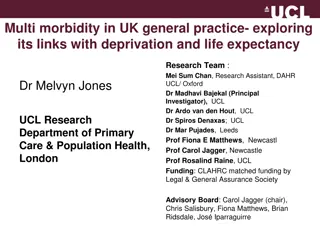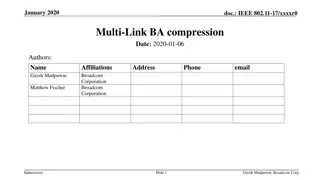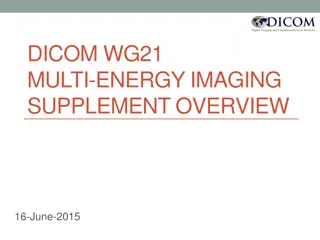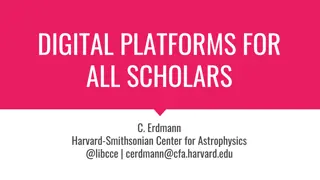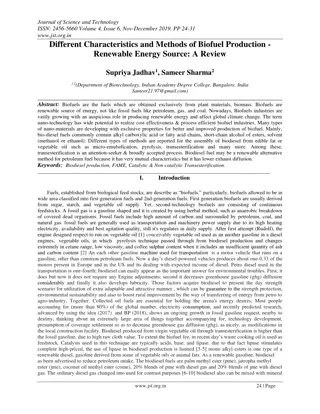Overview of WhatsApp Web | WhatsApp messenger | WebMaxy
The WhatsApp Web is a convenient extension of the popular WhatsApp Messenger, allowing users to access their messages from a computer. This seamless synchronization enhances communication flexibility. Meanwhile, WebMaxy takes this a step further, offering WhatsApp Commerce solutions for businesses.
1 views • 8 slides
[PDF⚡READ❤ONLINE] Black Hole Astrophysics: The Engine Paradigm (Springer Praxis
\"COPY LINK HERE ; https:\/\/getpdf.readbooks.link\/B00DGEQPXS\n\nRead ebook [PDF] Black Hole Astrophysics: The Engine Paradigm (Springer Praxis Books) | Black Hole Astrophysics: The Engine Paradigm (Springer Praxis Books)\n\"\n
0 views • 6 slides
[PDF⚡READ❤ONLINE] Cosmology and Particle Astrophysics (Wiley-Praxis Series in As
\"COPY LINK HERE ; https:\/\/getpdf.readbooks.link\/0471970417\n\n[PDF READ ONLINE] Cosmology and Particle Astrophysics (Wiley-Praxis Series in Astronomy & Astrophysics) | Cosmology and Particle Astrophysics (Wiley-Praxis Series in Astronomy & Astrophysics)\n\"\n
0 views • 6 slides
Satellite Messenger Market Analysis & Revenue Through 2023-2033
The\u00a0global satellite messenger market\u00a0is estimated to reach $2,858.7 million by 2033 from $830.9 million in 2023, at a growth rate of 13.15% during the forecast period 2023-2033.\nRead Report Overview: \/\/bisresearch.com\/industry-report\/satellite-messenger-market.html
4 views • 3 slides
Radiation and Black Body Radiation in Astrophysics
Explore the concepts of radiation and black body radiation in astrophysics by analyzing the peak emissions of the Sun, Earth, and distant stars. Calculate black body radiation peaks, temperatures, and power outputs for various celestial bodies, as well as heat transfer rates in different scenarios.
0 views • 29 slides
Streamlining Communication with WhatsApp Messenger Integration
WhatsApp messenger integration allows companies to leverage the platform's vast reach and user-friendly interface to enrich customer engagement. By integrating WhatsApp into their existing systems and workflows, businesses can provide a unified communication experience, eliminating the need for cust
1 views • 6 slides
Understanding Orbits and Motion in Astrophysics
Explore the concept of orbits and motion in astrophysics, covering gravitational forces, planetary orbits, orbital speeds, and celestial phenomena like lunar eclipses. Delve into how objects move in space, the relationships between orbital speed, radius, and time period, and the dynamics of celestia
0 views • 14 slides
Understanding Multi-AP Operation in IEEE 802.11-20-0617/r3
Explore the basic definitions and key features of Multi-AP operation in the IEEE 802.11 standard. Learn about Multi-AP Candidate Set (M-AP-CS) and Multi-AP Operation Set (M-AP-OS) along with their participants and formation. Delve into the concepts of Coordinator AP, Coordinated AP(s), and reliable
0 views • 19 slides
IEEE 802.11-2020 Multi-Link Reference Model Discussion
This contribution discusses the reference model to support multi-link operation in IEEE 802.11be and proposes architecture reference models to support multi-link devices. It covers aspects such as baseline architecture reference models, logical entities in different layers, Multi-Link Device (MLD) f
1 views • 19 slides
IEEE 802.11-23/1980r1 Coordinated AP-assisted Medium Synchronization Recovery
This document from December 2023 discusses medium synchronization recovery leveraging multi-AP coordination for multi-link devices. It covers features such as Multi-link device (MLD), Multi-link operation (MLO), and Ultra High Reliability (UHR) capability defined in P802.11bn for improvements in rat
0 views • 8 slides
Fascinating Research in Astrophysics and Planetary Science
Prof. Alberto Bolatto explores extragalactic research, Prof. Drake Deming studies extrasolar planets, Dr. Tony Farnham specializes in cometary studies, Lori Feaga maps cometary gas comae, Prof. Suvi Gezari investigates supermassive black holes, and Prof. Douglas Hamilton delves into planetary dynami
0 views • 23 slides
Understanding Multi-Band Multi-Channel Concept in IEEE 802.11be
Exploring the benefits of Multi-Band Multi-Channel (MBMC) operation in IEEE 802.11be, this study delves into the efficient use of spectrum, increased data rates, and network load balancing. It also discusses the envisioned usage models and compares Single Band Operation with Multi-Band Operation, hi
2 views • 20 slides
Development of CHARA/SPICA Project for Stellar Astrophysics Research
CHARA/SPICA project history spans from funding requests to the realization of SPICA instruments, including SPICA-FT and SPICA-VIS. Scientific requirements focus on stellar physics, visible interferometry, and large surveys for stellar parameters determination, with detailed specifications for fringe
0 views • 6 slides
Roles and Organization of the Burst Advocate Support Team in Astrophysics
This document outlines the structure and responsibilities of the Burst Advocate (BA) support team in the context of astrophysics research, focusing on roles such as Burst Advocate, Instrument Scientist, Instrument Expert, and Burst Advocate Assistant. The team's tasks include supervising data distri
1 views • 20 slides
IReNA: International Research Network for Nuclear Astrophysics
IReNA is an international network of networks focused on nuclear astrophysics, connecting researchers from various countries and institutions to enhance collaboration. Networks include Rare Isotope Accelerators, Gravitational Waves, Neutrino Physics, and more, aiming to advance research in the field
0 views • 11 slides
ESCAPE Kick-Off Meeting for E-OSSR in European Science Cluster of Astronomy & Particle Physics
European Science Cluster of Astronomy & Particle Physics (ESCAPE) initiated the E-OSSR project to establish an open-source scientific software and service repository. The project aims to promote open science in the EOSC while following the FAIR principle. Funded by the European Union's Horizon 2020
0 views • 26 slides
Overview of PHENIICS: A Hub for Particle Physics and Nuclear Astrophysics at Université Paris-Saclay
PHENIICS is a scientific hub at Université Paris-Saclay focusing on particle physics, nuclear astrophysics, and related disciplines. It encompasses various labs, doctoral programs, grant opportunities, and organizational structures. With a diverse demographic and international collaborations, PHENI
0 views • 12 slides
Virtual Carrier Sense in Multi-Link Networks
This document discusses the implementation and advantages of virtual carrier sense in multi-link networks under the IEEE 802.11 standard. It explores the operation of multi-link setups, asynchronous communication benefits, and the necessity of multiple contention channels. The concept of NAV (Networ
2 views • 11 slides
Key Fusion Reactions in Nuclear Astrophysics
Fusion reactions play a crucial role in nuclear astrophysics, with key reactions involving light elements such as Li, Be, B, and stable carbon isotopes. Understanding fusion of light heavy nuclei at extreme energies is essential for predicting stellar evolution. The S-factor provides a convenient re
0 views • 31 slides
Understanding Nuclear Decays and Reactions in Stellar Astrophysics
Nuclear decays and reactions, driven by weak interactions, are vital in stellar astrophysics. Various processes like bound-state beta-decay impact nucleosynthesis and cosmochronology. Specific processes in stars involve capture reactions, electron capture, and neutrino-nucleus interactions. Stellar
0 views • 22 slides
Lessons Learned from EM Partnerships and Multi-Messenger Astronomy in O1
Reflecting on the successes and challenges encountered in O1, this presentation by Peter Shawhan explores the effectiveness of different collaborative approaches in multi-messenger astronomy. Key points include prior research activities, experiences with partner groups, the significance of MOUs, and
0 views • 11 slides
Exploring Cosmic Neutrinos: The GRANDProto300 Experiment in LengHu, China
Understanding the mysteries of ultra-high-energy cosmic rays and the connection to cosmic neutrinos is a pivotal quest in astrophysics. The GRANDProto300 experiment in LengHu, QingHai province, China, aims to detect cosmic neutrinos using the Giant Radio Array for Neutrino Detection. The experiment
0 views • 31 slides
Riccardo Giacconi: An Astounding Journey in Astrophysics
Riccardo Giacconi's remarkable journey in astrophysics from studying cosmic radiation in Milan to joining the American Science and Engineering company to pioneering cosmic X-ray astronomy. His pivotal role in setting up research groups, launching satellites, and significant observations in the field
0 views • 20 slides
Performance Aspects of Multi-link Operations in IEEE 802.11-19/1291r0
This document explores the performance aspects, benefits, and assumptions of multi-link operations in IEEE 802.11-19/1291r0. It discusses the motivation for multi-link operation in new wireless devices, potential throughput gains, classification of multi-link capabilities, and operation modes. The s
0 views • 30 slides
Riccardo's Years at Harvard: Contributions to High-Energy Astrophysics
Explore Riccardo's significant contributions during his years at Harvard University, collaborating with prominent researchers, teaching courses in high-energy astrophysics, and engaging in influential faculty meetings. His work led to groundbreaking discoveries and advancements in the field.
0 views • 8 slides
Exploring Astronomy and Astrophysics with EGI-InSPIRE
Delve into the world of Astronomy and Astrophysics through the collaborative efforts supported by EGI-InSPIRE. The community studies the vast universe through observations, simulations, and complex computing demands. Challenges include virtual observatories, smart technologies, and data sharing to a
0 views • 10 slides
Division of Astronomy and Space Physics Overview: Research and Teaching Programs
Division of Astronomy and Space Physics, in cooperation with the Swedish Institute of Space Physics (IRF), focuses on researching topics such as the first stars and galaxies, re-ionization of the Universe, and more. With distinct but complementary areas of expertise, the division offers programs in
0 views • 10 slides
Quick Recommendations for Multi-Messenger Astronomy Advancements
Top astrophysicists Neil Gehrels, Jonah Kanner, Mansi Kasliwal, and Peter Shawhan suggest leveraging existing resources like global GW networks and optical/radio surveys. They propose supporting EM capabilities development, NASA missions, and data mining for efficient observations. Additional fundin
0 views • 6 slides
Advancing Astronomy Research with ASTERICS Project
The ASTERICS project, part of the Astronomy ESFRI Research Infrastructure Cluster, aims to enhance collaboration among astronomy, astrophysics, and particle astrophysics communities. By managing and exploiting large datasets through a Virtual Observatory framework, ASTERICS facilitates new scientifi
0 views • 11 slides
Comprehensive European Astronomy Development Planning by ASTRONET
ASTRONET, a group of European funding agencies and infrastructures, coordinates all aspects of European astronomy. Established in the early 2000s with EU funding, ASTRONET focuses on long-term planning for the development of European astronomy. It has created the European Science Vision and Infrastr
1 views • 7 slides
Multi-Stage, Multi-Resolution Beamforming Training for IEEE 802.11ay
In September 2016, a proposal was introduced to enhance the beamforming training procedures in IEEE 802.11ay for increased efficiency and MIMO support. The proposal suggests a multi-stage, multi-resolution beamforming training framework to improve efficiency in scenarios with high-resolution beams a
0 views • 11 slides
John 1:6-8, 19-28 - The Messenger John Prepares the Way
In John 1:6-8, 19-28, we learn about John the Baptist, who was sent by God to prepare the way for the coming of the Lord. He humbly acknowledges that he is not the light but only a messenger. When questioned by the Jewish authorities, he clarifies that he is not the Messiah, Elijah, or the Prophet,
0 views • 11 slides
Understanding Astrophysics: Forces, Motion, and Gravitational Fields
Explore the realm of astrophysics through forces, motion, energy, and gravitational fields. Delve into topics like orbits, velocity, and the fundamental units of measurement, all depicted in engaging visual representations. Gain insights into the vastness of the universe, galaxies, stars, and planet
0 views • 9 slides
IEEE 802.11-19/0773r0 Multi-link Operation Framework Summary
The document discusses the multi-link operation framework for IEEE 802.11-19/0773r0, focusing on load balancing and aggregation use cases. It introduces terminology related to multi-link logical entities and provides examples of multi-link AP and non-AP logical entities. The framework considers stee
0 views • 16 slides
Computational Tools in Planetary Astrophysics - Fall 2017
Explore a limited subset of computational tools in planetary astrophysics used for modeling planetary transits, secondary eclipses, phase curves, radial velocities, Bayesian parameter estimation, and atmospheric modeling. Tools include BATMAN, SPIDERMAN, RadVel, e.emcee, and Exo_Transmit, each servi
0 views • 7 slides
Understanding Multi-morbidity and Deprivation in UK General Practice
Exploring the association between multi-morbidity, deprivation, and life expectancy in the context of UK general practice. The research aims to quantify socio-economic inequalities in chronic disease onset and life expectancy, particularly among older populations with multi-morbidity. Methods includ
0 views • 27 slides
IEEE 802.11-17: Enhancing Multi-Link Operation for Higher Throughput
The document discusses IEEE 802.11-17/xxxxr0 focusing on multi-link operation for achieving higher throughput. It covers motions adopted in the SFD related to asynchronous multi-link channel access, mechanisms for multi-link operation, and shared sequence number space. Additionally, it explores the
0 views • 14 slides
Overview of DICOM WG21 Multi-Energy Imaging Supplement
The DICOM WG21 Multi-Energy Imaging Supplement aims to address the challenges and opportunities in multi-energy imaging technologies, providing a comprehensive overview of imaging techniques, use cases, objectives, and potential clinical applications. The supplement discusses the definition of multi
0 views • 33 slides
Digital Platforms for Scholarly Engagement in Astrophysics and Data Science
Explore a collection of resources covering digital platforms, data wrangling, cleaning pipelines, GitHub utilization, and more for scholars in the fields of astrophysics and data science. Enhance your research data lifecycle experience and learn about tools like Open Refine, GitHub, and software/dat
0 views • 33 slides
Advances in Astrophysics
Our Advances in Astrophysics, the branch of astronomy that applies the principles of physics and chemistry to understand celestial phenomena, has seen groundbreaking advances in recent years. These strides have been driven by cutting-edge technology,
0 views • 8 slides

![[PDF⚡READ❤ONLINE] Black Hole Astrophysics: The Engine Paradigm (Springer Praxis](/thumb/21503/pdf-read-online-black-hole-astrophysics-the-engine-paradigm-springer-praxis.jpg)
![[PDF⚡READ❤ONLINE] Cosmology and Particle Astrophysics (Wiley-Praxis Series in As](/thumb/21627/pdf-read-online-cosmology-and-particle-astrophysics-wiley-praxis-series-in-as.jpg)
